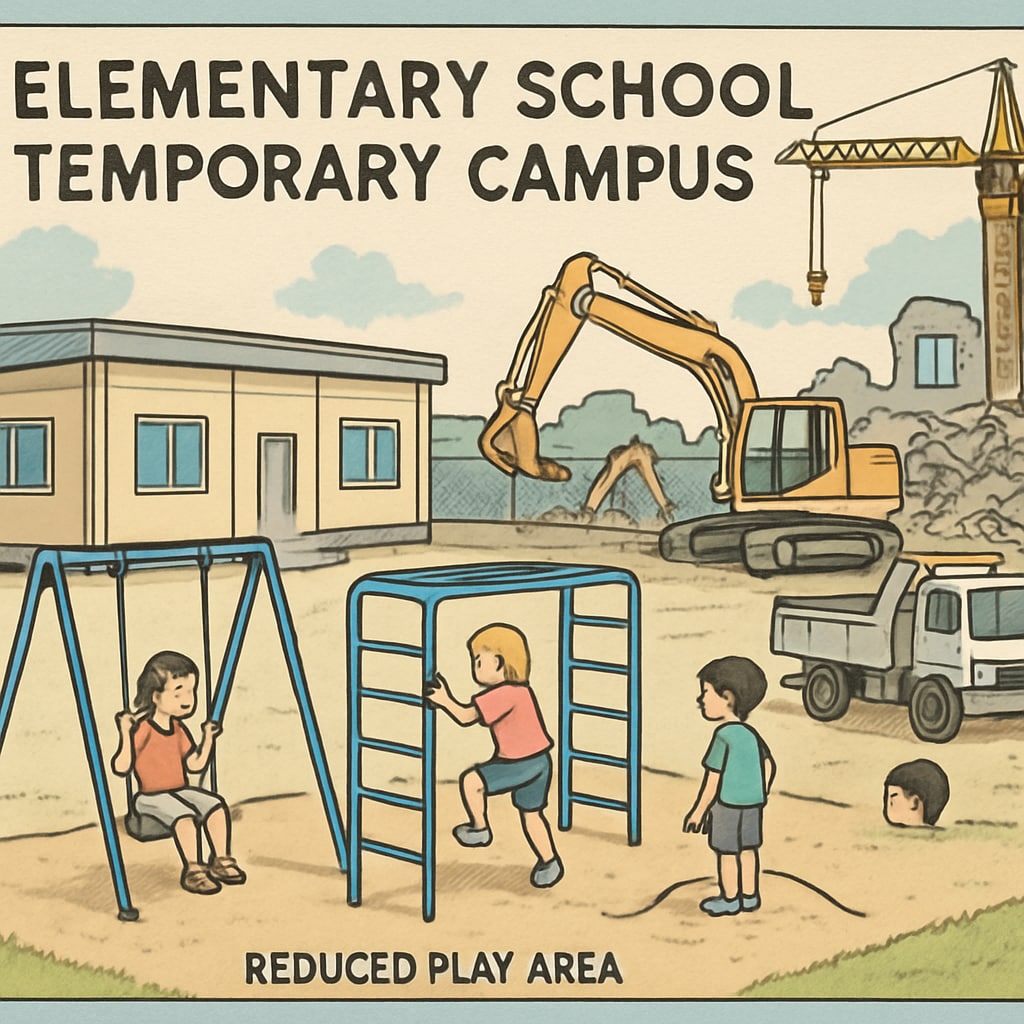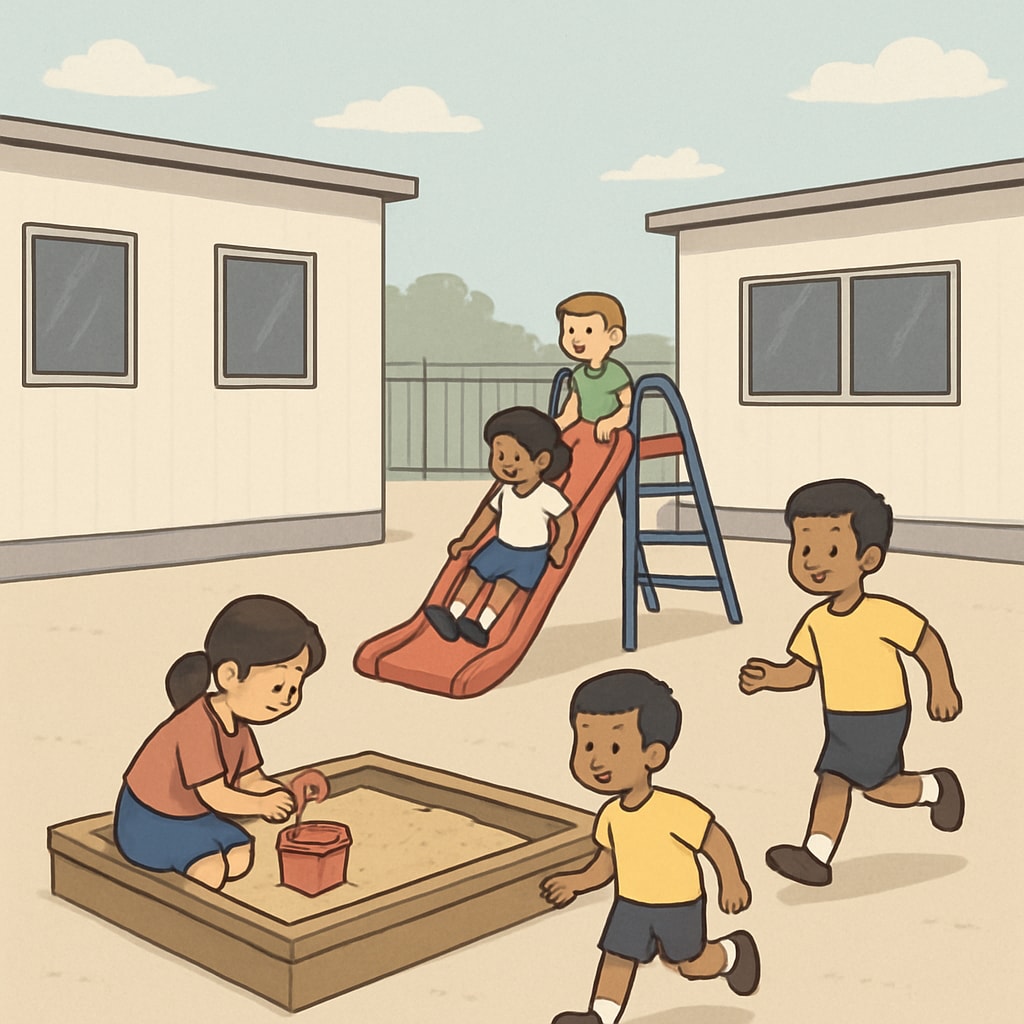School reconstruction projects often lead to temporary campus changes, influencing the overall elementary school experience for students. These changes, which can span three to four years, include reduced spaces, missing play facilities, and limited parental involvement. Such disruptions can significantly impact children’s academic, social, and emotional development during their formative years.

How Limited Spaces Influence Social Interaction and Learning
One major challenge during school reconstruction is the reduction of physical space. Temporary campuses often lack expansive playgrounds and dedicated areas for extracurricular activities. As a result, children may find fewer opportunities to interact with peers outside the classroom, limiting their social growth. Moreover, overcrowded classrooms and shared facilities can create distractions, making it difficult for students to focus on learning.
For example, research has shown that physical environments play a key role in shaping children’s behavior and academic performance. When space is constrained, students may feel stressed or overwhelmed, which can hinder their ability to absorb new information. Additionally, the absence of personal spaces for group projects or quiet time can stifle creativity and collaboration.
The Role of Play Facilities in Holistic Development
Play facilities are vital for children’s physical and emotional development. During school reconstruction, playgrounds and recreational equipment are often removed or limited due to construction activities. This lack of play options can negatively affect students’ physical health and reduce their ability to engage in unstructured play, which is essential for developing problem-solving skills and emotional resilience.
For example, playgrounds provide more than just physical exercise; they are spaces where children learn teamwork, negotiation, and conflict resolution. Without access to these facilities, students may miss out on crucial developmental milestones, impacting their overall growth.

Reduced Parental Involvement During Reconstruction
Parental involvement is another aspect affected during school reconstruction. Temporary campuses are often located farther away from communities, making it difficult for parents to participate in school activities or volunteer programs. This reduced engagement can weaken the bond between parents and the school, impacting the overall support system available to students.
In addition, parents may feel disconnected from their child’s educational journey. Studies highlight the importance of parental involvement in boosting academic achievement and emotional well-being. Therefore, schools must actively seek alternative ways to involve parents, such as virtual meetings or community events held off-campus.
Strategies to Mitigate Negative Impacts
While temporary campus changes are inevitable during reconstruction, schools can adopt strategies to minimize disruption. Here are some recommendations:
- Creative use of space: Optimize available areas by creating multi-purpose zones for learning and play.
- Temporary play facilities: Install portable equipment such as small slides, basketball hoops, or sandbox areas.
- Virtual parental engagement: Use online platforms to keep parents informed and engaged in their child’s education.
- Open communication: Maintain transparency about reconstruction timelines and updates to alleviate parental concerns.
- Counseling support: Provide emotional support services to help children adapt to temporary changes.
By implementing these strategies, schools can ensure that students continue to thrive despite temporary disruptions. The goal is to create a balanced environment that prioritizes both academic excellence and emotional well-being.
Readability guidance: The article uses concise paragraphs, active voice, and clear transitions to ensure readability. Lists are included to summarize actionable points, and images are strategically placed to enhance understanding.


